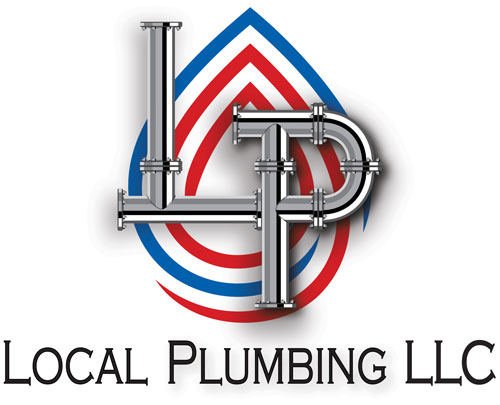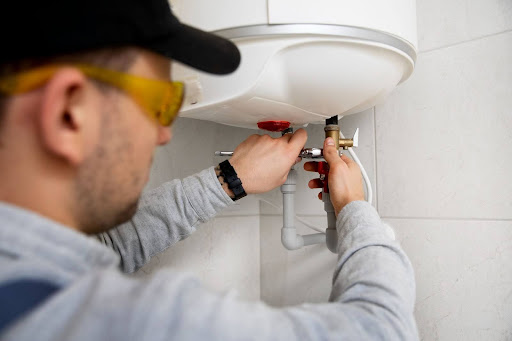But how do you determine if your water heater in Texas needs replacement? This blog will guide you through the key signs and considerations to help you make an informed decision.
When To Replace Your Water Heater Before Winter Hits
Your Water Heater Is Over 8–12 Years Old
Most traditional tank water heaters have a lifespan of 8 to 12 years. If your unit is approaching or past this age, it’s at higher risk of failure, especially under the stress of winter usage. As internal components like the anode rod wear down over time, the tank becomes more susceptible to corrosion, sediment buildup, and efficiency loss. Replacing a water heater before winter with a more energy-efficient model can help you avoid emergency breakdowns when hot water is most essential.
Inconsistent Or Lukewarm Water During Colder Months
If you’re getting lukewarm water, or it takes a long time to heat up, your system may be struggling to keep up with demand. Cold incoming water in winter already forces your heater to work harder. Combine that with worn-out heating elements or failing thermostats, and your system simply won’t perform. This drop in performance may indicate it’s time for a water heater replacement, especially if you’re experiencing it repeatedly during winter.
Rusty Or Discolored Water
Rust-colored or murky water from your hot taps often points to corrosion inside the tank. This is typically caused by a deteriorating anode rod, which is designed to attract corrosive minerals and protect the tank’s inner lining. Once the rod is spent, rust begins to eat through the tank itself, leading to water contamination and eventually leaks.
This issue is especially common in Central Texas, including areas like New Braunfels, San Marcos, and Austin, where hard water is rich in calcium and magnesium. These minerals accelerate anode rod degradation and tank corrosion. If you live in these areas and notice discoloration in your hot water, don’t delay—it’s an early warning that your water heater may be close to failing.
Visible Leaks Or Moisture Around The Tank
Spotting puddles, dampness, or corrosion at the base of your water heater shouldn’t be ignored. Even small leaks can worsen in cold weather as metal contracts and expands. These leaks often come from cracks in the tank or loose fittings, both of which can be signs that the integrity of the system is compromised.
Unusual Noises From The Heater
Hearing banging, rumbling, or popping noises from the water heater in Texas? Don’t ignore these sounds as they usually mean there’s a thick layer of sediment inside the tank that’s causing the water to overheat and boil beneath the debris. As winter increases heating demands, this problem intensifies, placing extra stress on the tank and burners. Such noises indicate your system is on borrowed time and could fail unexpectedly.
Burn Marks or Scorching Near the Burner (Gas Units)
Scorch marks, burn stains, or soot around the burner access panel of a gas water heater often signal poor combustion or a serious gas venting problem. These issues can be hazardous and tend to worsen in winter when the unit operates more frequently. If you spot signs of overheating or improper ventilation, replacement is often safer than repair.
Unpleasant Odors From Hot Water
If your hot water smells like rotten eggs, it may be due to bacterial growth inside the tank, especially if the water has been stagnant. This odor is usually caused by a reaction between the anode rod and sulfur or bacteria in the water. While flushing and replacing the rod may help temporarily, persistent odors often signal it’s time for a new unit, preferably one with advanced anti-bacterial features.
Winter Preparation Checklist For Your Water Heater
Here are some expert winter plumbing tips to help your water heater run efficiently:
- Flush The Tank: Over time, minerals from hard water settle at the bottom of the tank. This sediment blocks heat transfer and forces the heater to overwork. Flushing the tank improves efficiency and prevents overheating during winter’s heavy use.
- Check the Anode Rod: The anode rod defends your tank against rust by attracting corrosive particles. If it’s heavily deteriorated, the tank’s interior starts corroding. Checking it before winter helps prevent long-term damage.
- Insulate Pipes And The Water Heater: Insulating hot water pipes reduces heat loss during transport, meaning hotter water reaches your taps faster. For heaters in garages or basements, tank insulation helps retain warmth from cold air.
- Test the Pressure Relief Valve: This valve releases excess pressure from the tank. A faulty valve can result in dangerous pressure buildup, especially when your heater is working harder in winter. Testing ensures the system’s safety.
- Adjust the Thermostat: In South Texas, where winters are milder, setting the thermostat to 120°F balances comfort and energy savings. But in North Texas, a slightly higher setting may be useful when water arrives colder from the main line.
- Insulate the Tank and Pipes: Unlike pipe insulation for heat retention, this insulation protects against freezing. It’s especially crucial for homes with unheated crawl spaces or outdoor plumbing sections.
Conclusion
If you’re noticing any of these warning signs or just want to ensure your system is ready for winter, it’s time to call in the experts. At Local Plumbing LLC, we help homeowners with complete water heater services, inspections, maintenance, and full replacements, ensuring your home stays comfortable and safe throughout the colder months. Our licensed plumbers in Schertz, Cibolo, and New Braunfels are available 24/7 to respond when you need us most. Call us today for assistance!




